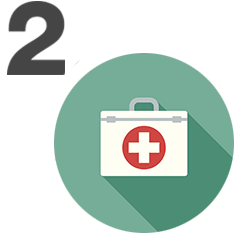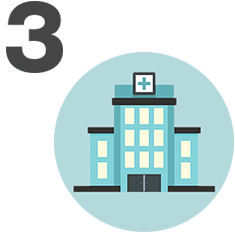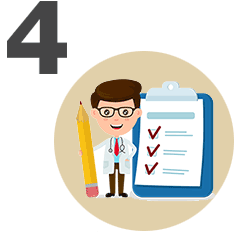Travel Safe with a Bleeding Disorder
Traveling with a bleeding disorder, such as hemophilia, can be stressful and challenging knowing that a bleed can happen at any time. Plan ahead to help manage bleeding episodes and medical emergencies that occur while away from home.
Before You Leave for a Trip
- Talk to your doctor about your travel plans to make sure you are in healthy condition to travel.
- Ask your doctor if there are any recommended vaccinations based on your travel plans. Vaccinations, such as hepatitis A and B vaccines, are highly recommended for people with bleeding disorders.
What to Pack

Travel Letter

- Ask your doctor for a travel letter that describes your bleeding disorder and the medicine you take. Download a sample.
- Your travel letter will allow transportation security officials to make sure your medicine and medical supplies are allowed while traveling.
- If you are traveling internationally, consider having an additional copy of the travel letter written in the primary language spoken in the country you are visiting.

Medicine and medical supplies
- Medicine and medical supplies are exempt from airline baggage restrictions.
- Clearly label all medicine and medical supplies and pack them separately in a carry-on bag. If items are safely stored in your carry-on, you will be able to use your items at any time, and you will have your items with you in case your checked luggage is delayed or lost.
- If there are any items that should not be exposed to X-rays, request your items to be physically inspected by the transportation security official.
- Unexpected travel delays can happen. Pack extra amounts of medicine and supplies in the event that your return home is delayed.
Pack these medical supplies in your carry-on or in a bag you have with you at all times:
(Click “Print this page” below to print a copy of the checklist)

A list of hospitals
- Make a list of hospitals or hemophilia treatment centers (HTCs) and their contact information that are along your travel route.
- Use the HTC directory for a list of HTCs in the United States. For a list of HTCs worldwide, use the World Federation of Hemophilia’s Global Treatment Centre Directory.

Medical and contact information
- Keep a copy of your important medical and contact information with you.
- Consider wearing a medical ID emblem if traveling alone to help inform medical personnel if you become unconscious or unable to communicate during an emergency.
For more information on traveling safely with a bleeding disorder, visit the National Hemophilia Foundation’s Steps for Healthy Living webpage.
Learn more about bleeding disorders on CDC’s webpage.
